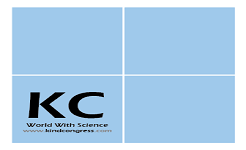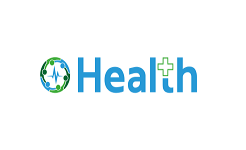Event Date
March 26-27, 2026
Venue
Rome, Italy
– Previous Conference Performers / Professionals From Around The Globe –
Media Partners/Collaborator
A huge thanks to all our amazing partners. We couldn’t have a conference without you!










Sponsors/Exhibitors
A huge thanks to all our amazing partners. We couldn’t have a conference without you!


About Conference
The 19th Edition of the International Conference and Expo on Pharmaceutics and Novel Drug Delivery Systems, scheduled for March 26–27, 2026 in Rome, Italy, will serve as a leading global forum for scientists, engineers, industry professionals, and regulators to share breakthroughs in formulation science and advanced delivery technologies.
Focus areas are expected to include nanocarriers, controlled release systems, targeted and stimuli‑responsive delivery, biologics and mRNA therapeutics, regulatory challenges, and translational pathways from lab to clinic. Through keynote lectures, oral and poster sessions, workshops, and an exhibition of drug delivery innovations, the event will foster multidisciplinary collaboration and accelerate the development of safer, more effective therapeutics worldwide.
Conference Objectives
-
Explore Advances in Drug Delivery Technologies:
Highlight the latest innovations in drug delivery systems, including novel formulations, biomaterials, and devices, with an emphasis on improving drug bioavailability, targeting, and controlled release. -
Promote Collaboration Between Industry and Academia:
Create a platform for researchers, pharmaceutical companies, and healthcare professionals to collaborate on research, development, and commercialization of novel drug delivery technologies. -
Address the Challenges in Drug Formulation:
Discuss the challenges faced in designing effective drug formulations, including issues related to stability, solubility, and pharmacokinetics, and explore new solutions that enhance therapeutic efficacy. -
Showcase Regulatory and Market Trends:
Provide an understanding of the regulatory landscape for novel drug delivery systems, including the challenges and opportunities in bringing new drugs to market, and how evolving market trends are shaping the future of pharmaceutics.
Conference Benefits
-
Cutting-Edge Research and Innovation: Gain access to the latest research, development strategies, and innovative approaches in pharmaceutics and drug delivery, including breakthrough advancements in nanotechnology, gene therapy, and biologics.
-
Networking Opportunities with Global Experts: The conference will bring together pharmaceutical researchers, industry leaders, and academic professionals, providing ample opportunities for networking, knowledge exchange, and collaboration.
-
Interactive Workshops and Sessions: Participate in hands-on workshops and technical sessions that delve into the practical aspects of drug formulation, delivery systems, and regulatory considerations, providing actionable insights to apply to your work.
-
Understanding Market and Regulatory Dynamics: Stay informed on the latest trends in pharmaceutical regulation, commercialization strategies, and market forces that are influencing the development and distribution of novel drug delivery systems.
-
Continuing Professional Development: The conference will offer CME (Continuing Medical Education) credits and professional development opportunities for attendees, ensuring that they stay at the forefront of the evolving field of pharmaceutics.
The conference will be organized around the theme “Advancements of Latest Technologies in Analytical and Bioanalytical Techniques”.
Conference Highlights
- Drug Discovery, Design & Development: Challenges and Approaches
- Pharmaceutical Research & Development
- Pharmaceutical Chemistry
- Pharmacognosy and Photochemistry
- Innovations in Drug Development
- Advanced Drug Delivery Systems
- Drug Safety
- Pharmaceutical Analysis
- Pharmaceuticals Manufacturing
- Industrial & Physical Pharmacy
- Nano-technology In Pharmaceuticals
- Nano medicine & Biomedical Applications
- Pharmaceutical Microbiology
- Pharmacology & Pharmacovigilance
- Radiopharmaceuticals & Biotherapy
- CBD and Cannabinoids
- Formulation Technologies
- Contract Formulation
- Regulatory Affairs
- Performulation Studies
- Clinical Trials
Sessions and Tracks
Track 1. Analytical Chemistry and Methodology
Analytical chemistry encompasses the acquisition, processing, and dissemination of data regarding the composition and arrangement of matter. It employs instruments and techniques to segregate, characterize, and measure substances. Separation techniques isolate analytes. The conventional methods are categorized into qualitative and quantitative approaches. Qualitative analysis discerns the identity of components by observing reaction characteristics. Specific reagents are chosen to selectively react with particular substances or classes of compounds, forming distinct products.
Quantitative Analysis – Traditional quantitative methods include gravimetric and volumetric analysis. Both approaches rely on extensive reactions between the analyte and the involved reagents.
Sub-fields of Analytical Chemistry:
- Applied Analytical Chemistry
- Environmental Analytical Chemistry
- Process Analytical Chemistry
- Instrumental Methods
Track 2. Bioanalytical Methodology
The evolution of bioanalytical techniques has brought about a dynamic landscape filled with promising opportunities to advance progress. Key objectives include investigating the introduction of toxic elements into pharmacokinetics, assessing bioequivalence, and exploring pharmacokinetics/pharmacodynamics relationships. A range of bioanalytical frameworks is employed in biological studies. This review particularly focuses on hyphenated bioscience approaches and tools used in assessing drug biostudies.
Highlighted Areas Include:
- Hyphenated Techniques
- Chromatographic Strategies
- Biodiagnostic Procedures for Ligands
Track 3. Polymer Science and Material Science
Crafted from materials crucial for advancement and future endeavors, our experts delve into various domains such as biodegradable plastics, solar cells, light-emitting diodes, control device terminals, arrestors, and tailored practical solutions. They explore the intricate architecture, layers, and potential hydrogen storage within these finished devices. Exploring novel inorganic and polymeric materials with versatile applications is at the forefront of their pursuits.
Areas of Exploration Include:
- Dynamic Mechanical Investigation
- Inverse Electron Echo Spectroscopy
- Fluorescence
- Differential Scanning Calorimetry
- Materials Design Chemistry
Track 4. Chromatography
Chromatography serves as a laboratory technique for separating mixtures. The mixture gets dissolved in a solvent, known as the mobile phase, which carries it through a medium containing another material called the stationary phase. Different components within the mixture move through this medium at varying rates, resulting in their separation. This process hinges on the distinct interactions between the mobile and stationary phases. Even slight differences in compound distribution coefficients lead to varying degrees of retention within the stationary phase, influencing separation.
Chromatography can be either preparative or analytical. Preparative chromatography aims to isolate specific components of the mixture for future use, akin to a form of filtration. Analytical chromatography, often conducted on minute quantities of substances, is employed to identify the presence of analytes within a mixture or estimate their relative concentrations. These two approaches are interconnected, each complementing the other.
Types of Chromatography Include:
- Gas Chromatography
- Thin Layer Chromatography
- Paper Chromatography
- Liquid Chromatography
- Advances in Chromatography and HPLC Technology
Track 5: Drug Discovery, Design & Development: Challenges and Approaches
Encompassing a broad spectrum of scientific disciplines, this track focuses on the challenges and approaches in drug discovery. It traverses through biology, chemistry, pharmacognosy, medicinal chemistry, and pharmacology, discussing the intricate processes of drug design, development, and the extensive research involved in bringing new pharmaceutical drugs to market.
Track 6: Innovations in Drug Development
This track delves into the ongoing innovations in life sciences, emphasizing the evolving landscape for pharmaceutical companies and pharmacists. It addresses the challenges of adapting and investing for the future while navigating the current market dynamics.
Track 7: Advanced Drug Delivery Systems
Advanced Drug Delivery Systems play a pivotal role in enhancing the efficacy of pharmaceutical compounds, including antibodies, peptides, vaccines, and enzymes. This track emphasizes the advantages of local drug delivery in minimizing side effects and toxicity while maximizing treatment impact.
Track 8: Drug Safety
This track covers the extensive study of drug attainment and culmination in large populations, focusing on risk assessment, risk management, and medication error prevention. It serves as a bridge between clinical pharmacology and epidemiology, ensuring the safety and well-being of patients.
Track 9: Pharmaceutical Analysis
Pharmaceutical Analysis involves the identification, determination, quantification, and purification of chemical components in practical chemistry. It adapts to new regulations and technological advancements, presenting challenges and goals for pharmaceutical formulation.
Track 10: Pharmaceuticals Manufacturing
Delving into the synthesis of pharmaceutical medications, this track breaks down the manufacturing process into unit operations. It covers pharmaceutical packaging, considering factors like protection, compatibility, customer convenience, filling method, sterilization, and cost.
Track 11: Industrial & Physical Pharmacy
Industrial Pharmacy encompasses drug manufacturing, development, marketing, and distribution. Physical Pharmacy, on the other hand, focuses on applying physics and chemistry to pharmaceutical dose form development and in vivo/in vitro activities of pharmaceutical dosage forms.
Track 12: Nano-technology In Pharmaceuticals
Pharmaceutical Nanotechnology applies nanoscience and nanomedicine to pharmacy, playing a key role in overcoming conventional dosage form limitations. It aims to improve bioavailability, patient compliance, and minimize damage to healthy cells.
Track 13: Nanomedicine & Biomedical Applications
This track explores nanotechnology applications in healthcare, emphasizing the use of nanoparticles to enhance drug behavior and delivery. It discusses potential treatments for complex medical challenges in areas like wound healing, tissue regeneration, and mitochondrial diseases.
Track 14: Pharmaceutical Microbiology
Pharmaceutical Microbiology focuses on the use of microorganisms in pharmaceutical production, emphasizing contamination control for drug safety. It plays a crucial role in producing and maintaining microbial-free drug products.
Track 15: Pharmacology & Pharmacovigilance
This track explores the potential of pharmacology in treating and preventing diseases. Additionally, it sheds light on the crucial role of pharmacovigilance in detecting, assessing, understanding, and preventing adverse effects or other drug-related problems, ensuring the safety of pharmaceutical interventions.
Track 16: Radiopharmaceuticals & Biotherapy
This track delves into the use of radiopharmaceuticals for precise imaging in diagnostic purposes and biotherapy, a treatment using substances from living organisms to combat diseases. It explores the evolving landscape of advanced medical interventions.
Track 17: CBD and Cannabinoids
Examining the therapeutic effects of cannabinoids, this track discusses their poorly absorbed nature and high demand for health and wellness purposes, particularly CBD, due to its healing properties. It provides insights into the challenges and opportunities associated with the utilization of cannabinoids in pharmaceutical applications.
Track 18: Formulation Technologies
This track involves the development of stable and patient-acceptable drug formulations. It discusses incorporating drugs into capsules or tablets, ensuring compatibility with other substances, and conducting studies to prevent harm. The focus is on achieving effective and safe drug delivery methods.
Track 19: Contract Formulation Pharmaceutical Ingredients
Covering the development of pharmaceutical ingredients exclusively at the request of specific members or private doctors, this track emphasizes the role of organizations like PCCA in ensuring rights only to the requesting individuals. It sheds light on the tailored approach to pharmaceutical ingredient development.
Track 20: Regulatory Affairs
Highlighting the pivotal role of regulatory affairs in gaining approval for new pharmaceutical products and maintaining approval, this track navigates the complex regulatory landscape in product development and launches. It underscores the significance of compliance with regulatory standards.
Track 21: Preformulation Studies
Preformulation studies focus on the chemical properties of new drug candidates affecting drug performance. These studies provide essential information for formulation design and molecular modification, contributing to the successful development of pharmaceutical products.
Track 22: Clinical Trials
Clinical Trials are designed to safeguard participant health and answer specific research questions. Phases include lab studies, human safety, expanded safety, and efficacy and safety assessments. This track provides insights into the rigorous processes involved in bringing new drugs to market, ensuring their safety and effectiveness.
Technological Advancements in Pharmaceutics
The field of pharmaceutics is undergoing a transformation with the advent of cutting-edge technologies such as artificial intelligence (AI), machine learning, and blockchain. AI and machine learning are revolutionizing drug discovery and development by enabling more efficient identification of potential drug candidates and predicting their interactions. Blockchain technology is enhancing transparency and security in the pharmaceutical supply chain, ensuring the authenticity and safety of medications.
Moreover, nanotechnology is playing a significant role in the development of advanced drug delivery systems, offering more targeted and efficient treatments with fewer side effects. This technology allows for precise delivery of drugs to specific cells or tissues, thereby improving therapeutic outcomes and patient compliance.
Personalized Medicine and Pharmacogenomics
The future of pharmaceutics is also closely tied to the advancement of personalized medicine and pharmacogenomics. These fields focus on tailoring medical treatment to individual genetic profiles, ensuring that patients receive the most effective therapies based on their unique genetic makeup. This approach not only enhances the efficacy of treatments but also minimizes adverse drug reactions, paving the way for more personalized and patient-centric care.
Market Analysis
The pharmaceutics and novel drug delivery systems market is rapidly growing, driven by advancements in nanotechnology, biologics, and personalized medicine. With a projected growth rate of 6-8% CAGR from 2023 to 2027, the market is expected to reach USD 1.1 trillion by 2027. Key drivers include the rising prevalence of chronic diseases like diabetes, cancer, and cardiovascular conditions, alongside the demand for more precise, effective treatments. Innovations in controlled release systems, targeted therapies, and biologic drugs are transforming drug delivery, with an increasing shift towards non-invasive solutions like transdermal patches and injectable devices. Nanomedicine, smart drug delivery systems, and personalized treatments are gaining traction, allowing for better drug targeting and reducing side effects. However, challenges such as high development costs, regulatory hurdles, and the complexity of formulation stability persist. The market is competitive, with global leaders like Johnson & Johnson, Pfizer, and Amgen vying for market share, while smaller companies focus on niche technologies. The growing demand for personalized medicine and the expanding healthcare infrastructure in emerging markets present significant opportunities, driving continued innovation and investment in the development of novel drug delivery technologies that promise to enhance patient outcomes and optimize therapeutic effectiveness.
About Venue
Rome, the capital of Italy, is one of the world’s most historically rich and culturally vibrant cities. Known as “The Eternal City,” Rome has been a center of power, religion, and culture for over 2,500 years. It was the heart of the ancient Roman Empire and later became a major hub for the Catholic Church, housing Vatican City—the world’s smallest independent state and spiritual headquarters for Roman Catholics. The city’s landscape is a unique blend of ancient ruins, Renaissance palaces, Baroque fountains, and modern Italian life. Iconic landmarks such as the Colosseum, the Roman Forum, the Pantheon, and St. Peter’s Basilica draw millions of visitors each year. Strolling through Rome’s cobbled streets, one encounters history at every turn, from piazzas buzzing with life to centuries-old churches and timeless art.
Beyond its historical allure, Rome is a thriving metropolis with a lively culinary scene, featuring traditional dishes like pasta carbonara, cacio e pepe, and Roman-style pizza. The city’s Mediterranean climate makes it pleasant to visit most of the year, with spring and autumn offering the best weather. Rome is also a major international destination for conferences, education, and business, with excellent connectivity through two international airports and a network of trains and public transport. Despite modern developments, the city maintains its old-world charm and timeless beauty. Whether you’re admiring Michelangelo’s work in the Sistine Chapel, throwing a coin into the Trevi Fountain, or enjoying espresso at a street-side café, Rome captivates with its blend of history, culture, and lifestyle. It is not just a city, but an experience—where every street tells a story, and every corner holds a piece of the past.
– Tracks & Key Topics –
- Drug Discovery, Design & Development: Challenges and Approaches
- Pharmaceutical Research & Development
- Pharmaceutical Chemistry
- Pharmaceutical Sciences: Academic and Industry Overview
- Pharmacognosy and Photochemistry
- Innovations in Drug Development
- Advanced Drug Delivery Systems
- Drug Safety
- Pharmaceutical Analysis
- Pharmaceuticals Manufacturing
- Industrial & Physical Pharmacy
- Nano-technology In Pharmaceuticals
- Nano medicine & Biomedical Applications
- Pharmacuetical Microbiology
- Pharmacology & Pharmacovigilance
- Radiopharmaceuticals & Biotherapy
- CBD and Cannabinoids
- Formulation Technologies
- Contract Formulation
- Regulatory Affairs
- Performulation Studies
- Clinical Trials
- Microcapsules
- Microfluidic Platform For Nanoparticle Synthesis
- Nanomedicine
- Nanoparticles
- Nanotechnology
- New Chemical Entity
- Novel Drug Delivery Systems
- Partition Coefficient
- Peptide Masking
- Peptides And Protein Drug Delivery
- Pharmaceutical Engineering
- Pharmaceutical Formulation
- Pharmaceutical Formulations
- Pharmaceutical Nanosystems
- Pharmaceutical Nanotechnology
- Pharmaceutical Regulatory Affairs & IPR
- Pharmaceuticals
- Pharmacoepidemology
- Pharmacogenetics
- Pharmacogenomics
- Pharmacognosy
- Pharmacokinetic Models
- Pharmacokinetics
- Pharmacotherapeutics
- Pharmacotherapy
- Pharmacovigilance
- Phytochemistry
- Receptor Binding
- Regenerative Medicine
- Absorption Enhancers
- Absorption Enhancers
- Advanced Research On Controlled Release
- Anticancer Drug Delivery For Tumor Targeting
- Antioxidants
- Antioxidants
- Bio Analytical Methods
- Bio Analytical Methods
- Bio Pharmaceutics And Biologic Drugs
- Bio-therapeutics As Novel Technique In Drug Delivery
- Bioavailability And Drug Absorption
- Bioequivalence
- Bioequivalence
- Biomarkers And Biosimilars
- Biomarkers And Biosimilars.
- Biomedicine
- Biomedicine
- Biopharmaceutical Drug Discovery And Development
- Biopharmaceutics
- Biotechnology
- Biotechnology
- Chemotherapy
- Clinical Pharmacy
- Clinical Trials
- Drug Delivery Equipment And Machinery
- Drug Delivery Research
- Drug Delivery Technologies
- Drug Discovery
- Drug Interactions
- Drug Repositioning
- Drug Targeting And Design
- Encapsulation
- Excipients
- Exosomes
- Gene Therapy And Tissue Engineering
- Generic Drugs
- Immunotherapy
- Ligand
- Liposomes
- Major Challenges In Drug Delivery
- Manufacturing Processes And Quality Control
- Smart Drug Delivery Systems
- Stability Studies
- Targeted Drug Delivery System
- Therapeutic Drug Monitoring
- Tissue Regeneration










































